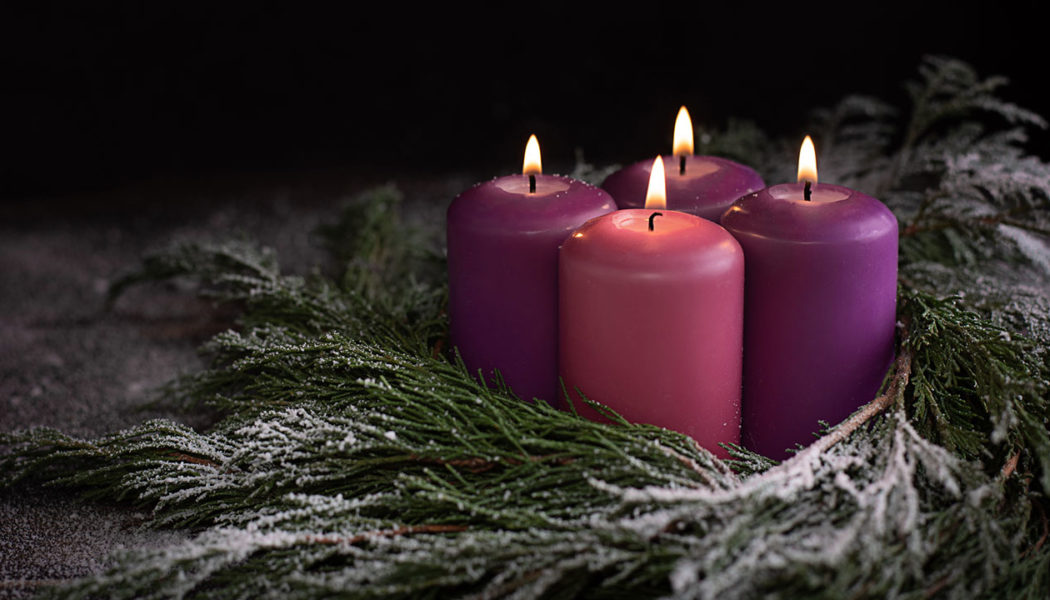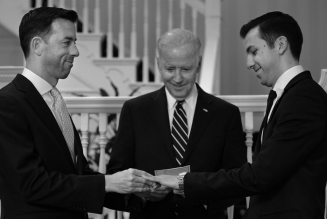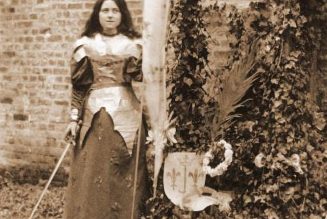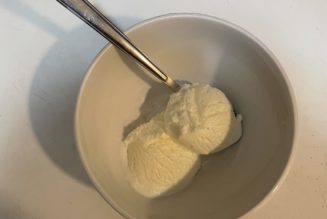Advent is upon us, a sacred time in the Church where we open our hearts to the coming of Christ. The word “Advent” itself, hailing from the Latin “advenio,” means “to come,” and it beautifully encapsulates the essence of this season — Adventus Domini, the coming of the Lord. During this blessed time, we await Christ’s arrival in a threefold manner: remembering His humble birth in a Bethlehem stable, welcoming Him in our lives today through grace and the Holy Eucharist, and looking forward to His return as our King and Judge at the end of time.
As we step into this new Liturgical Year (Happy New Year to the Church!), we embrace the four Sundays of Advent, each a beacon of hope and preparation. The liturgical colors of Advent, violet and rose, fill our parishes and homes. The color rose, specifically used on Gaudete Sunday, the third Sunday of Advent, symbolizes joy. “Gaudete,” in Latin, means “rejoice.”
Our Church is a treasure trove of scripture and rich traditions, and I’m excited to share some of the ways our family has embraced these during Advent! I suggest picking just one new activity to add to your family’s Advent practices. For instance, if you’re already lighting an Advent Wreath each year, try creating a Jesse Tree this time.
Here are some ideas to help make this Advent special …
1. Advent Wreath

A cherished tradition in our home is the Advent Wreath. We use Advent, Christmas, and Epiphany in The Domestic Church by Catherine and Peter Fournier. This book provides a prayer for each week of Advent. We light the appropriate candle or candles every night before we eat dinner and recite that week’s prayer.
The Advent Wreath, rich in liturgical symbolism, connects us as the Domestic Church to the broader Church. Our children witness the Advent Wreath lit during Sunday Mass and then see it again in our homes.
2. Advent Prayer

As a family, we created our own Advent Prayer, with the children being the main contributors. Once we wrote it, each child took turns typing and then illustrating our prayer. We recite this prayer daily.
One year, our children composed the following: “Dear Jesus, please help us prepare our hearts for Your coming at Christmas and for Your Second Coming. Thank You for all the blessings we’ve experienced this year. Thank you for all the animals, especially those who kept You warm on the day of Your birth. Amen.”
3. Advent Calendar

One of our Advent traditions is using an Advent Calendar. It’s a delightful way to count down the days until Christmas, with each window revealing a part of the story or a small surprise. You can find a selection of beautiful Advent Calendars here.
We enjoy reading Waiting for Christmas: A Story about the Advent Calendar alongside this daily activity. This book adds depth to the Advent Calendar tradition by weaving a heartwarming story that captures the anticipation and joy of the season. It’s a wonderful way to engage children in the true spirit of Advent.
4. Jesse Tree

We continue to find inspiration in the book Advent, Christmas, and Epiphany in The Domestic Church. Using this resource, we create ornaments for our Jesse Tree, each adorned with symbols from the book and corresponding Bible verses. Every evening after supper, we read these scripture verses, reflecting on the rich tapestry of Salvation History. Then, we hang the ornament, made from cardstock and decorated with glitter, on our small, artificial Christmas tree.
We start by placing the ornaments at the bottom of the tree and layer them upwards, culminating with the Week 4 ornaments at the top. This tradition connects us to the biblical narrative and reminds us of how St. Therese and her family cherished reading the Gospel together each night.
A recommended book for those looking to start their own Jesse Tree tradition is The Jesse Tree, which offers great insights and ideas for this meaningful activity.
5. Nativity Set

Our children enjoy setting out the manger at the beginning of Advent, without Baby Jesus, and adding straw to it whenever they make a sacrifice or perform an act of kindness. The idea is that, by the end of Advent, Baby Jesus will have a soft place to lay his head. We also move the characters in the set around so they are seen processing towards the stable. I have often found Mary and Joseph on the stairs during many an Advent morning as they journey to Bethlehem!
On Christmas Eve, we turn off all the lights in the house, take Baby Jesus (with lit candles), and place him in the manger. We sing “Silent Night” as we process from upstairs down to our living room. On Christmas morning, we read from Luke’s Gospel about the birth of our Lord before opening presents. Additionally, we bought a durable Nativity Set from Fontanini, which has held up well over the years.
6. The O Antiphons

This is one of my favorite Advent traditions! For those unfamiliar, the O Antiphons are a series of ancient liturgical texts sung or recited in the final days of Advent, from December 17th to 23rd. You can delve deeper into their history and significance at Catholic Culture.
My journey with the O Antiphons began when our daughter Claire was just two years old. Inspired by what I can only describe as a Holy Spirit moment, I decided to bring these antiphons into our home in a unique way. We took seven paper plates, one for each of the O Antiphons, and transformed them into a visual and interactive experience. On each plate, we drew and colored symbols representing the different titles of the Messiah, as mentioned in the antiphons (for example, Dec. 22nd is O Rex Gentium — O King of Nations — and we drew a King’s Crown). Our guide for these symbols was again the book Advent, Christmas, and Epiphany in The Domestic Church.
Once decorated, we punched holes at the top of each plate, threaded yarn through them, and displayed them on our kitchen window, facing outward. We would then turn around the plate corresponding to that day’s antiphon each day, creating a visual countdown to Christmas. Accompanying the turning of each plate, we recited or sang the prayer associated with that day’s antiphon. This practice brought the rich symbolism of the O Antiphons into our daily lives and connected us more deeply to the Advent season.
As the years passed and the original paper plates wore out, we created new O Antiphons using gold poster board and glitter for an even more festive touch. This tradition has become a beloved part of our Advent celebrations, bringing beauty and spiritual depth to our preparations for Christmas.
7. Celebrating Feast Days

In our home, we joyfully celebrate several feast days during the Advent season, each with its unique traditions and activities:
-
Dec. 6 – The Feast Day of St. Nicholas: This day is a highlight for children and is celebrated enthusiastically yearly. The St. Nicholas Center is a treasure trove for more ideas and resources. In our tradition, we use St. Nicholas cookie cutters from the Center to bake traditional gingerbread cookies. The children eagerly anticipate discovering small gifts, like gold chocolate coins, in their stockings by the fireplace. It’s a delightful morning as they wake up and peek into their stockings. Together, we offer a prayer to St. Nicholas, asking for his intercession to help us emulate his generosity and kindness.
-
Dec. 8 – The Feast of the Immaculate Conception: Attending Mass is central to celebrating this solemnity. In the past, we’ve also ‘adopted’ expectant mothers through a local maternity home, providing them with essential items for their newborns. One memorable year, we visited a mother in the hospital who had just given birth on December 8th. This experience deeply moved the children. Additionally, some families honor this day with a dinner featuring white foods, symbolizing purity, with dishes like white rice, chicken Alfredo, and New England clam chowder. For more ideas on this theme, visit Catholic Cuisine.
-
Dec. 12 – The Feast of Our Lady of Guadalupe: This day is celebrated with a vibrant fiesta, complete with Mexican cuisine and heartfelt prayers to Our Lady of Guadalupe. For many years, we’ve enjoyed this tradition, which includes a fun activity where guests’ names are placed in a sombrero, and a child randomly selects a name to receive a gift card donated by local Mexican restaurants. We display a statue of Our Lady of Guadalupe and sing “Immaculate Mary” as part of our devotion. We also encourage each family to bring diapers or wipes, which we donate to a local maternity home. Catholic Cuisine offers a wonderful selection for festive Mexican recipes suitable for this feast day.
8. Reading Books

Reading books about Advent and Christmas can be a wonderful way to engage children in the season. Numerous books are available for different age groups, from picture books for younger children to more complex narratives for older children.
For younger children, ages 4-8, these are three of our favorites:
To celebrate the Feast of St. Nicholas, we like these books:
For the Feast of the Immaculate Conception and Our Lady of Guadalupe, we read:
Books by Tomie dePaola that are wonderful to read during Advent (ages 6-10):
Books to celebrate Christmas around the world that we love:
Here are some other great books to read during Advent (for ages 6 and up):
For children in middle school and high school, I would suggest the following (or you could do some of these as read-alouds for the entire family):
There are some audiobooks and CDs I would also suggest for Advent (actually, anything by Jim Weiss is awesome, and all the Classical Kids CDs are amazing):
Conclusion
Remember, the goal of these activities is not to overwhelm but to enhance your family’s Advent experience. Choose the ideas and resources that work best for your family, and remember the true reason for the season: preparing our hearts for the coming of Christ.
May you have a peaceful and holy Advent!








